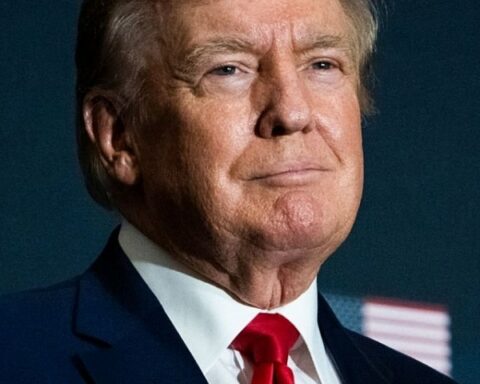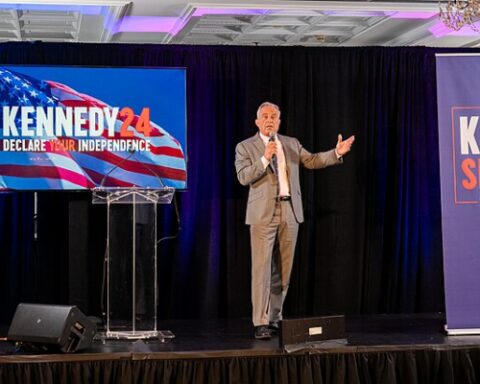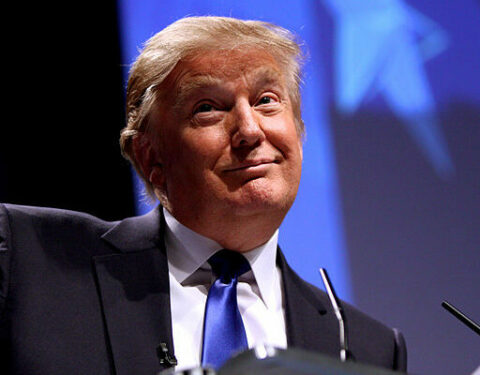In February, a Chinese spy balloon floated across the United States while President Biden sat helplessly in the Oval Office doing next to nothing. The president insisted that there was nothing he could do until he ordered the military to shoot it down over the Atlantic in waters that made its retrieval difficult.
New Conservative Post reported that the president knew about the craft before it even entered American territory but did nothing. The White House covered up its incompetence with help from the media, but now it turns out that national security secrets may have been stolen by China.
The White House assured the public that the balloon was not gathering important national security intelligence. It turns out they weren’t telling the truth.
Two senior American officials and a former senior administration official told NBC News that the spy aircraft gathered sensitive intelligence of American military sites, “despite the Biden administration’s efforts to block it from doing so.”
“China was able to control the balloon so it could make multiple passes over some of the sites (at times flying figure eight formations) and transmit the information it collected back to Beijing in real time, the three officials said. The intelligence China collected was mostly from electronic signals, which can be picked up from weapons systems or include communications from base personnel, rather than images,” NBC News reported.
“The three officials said China could have gathered much more intelligence from sensitive sites if not for the administration’s efforts to move around potential targets and obscure the balloon’s ability to pick up their electronic signals by stopping them from broadcasting or emitting signals.
The National Security Council referred NBC News to the Defense Department for comment. The Defense Department directed NBC News to comments from February in which senior officials said the balloon had “limited additive value” for intelligence collection by the Chinese government “over and above what [China] is likely able to collect through things like satellites in low earth orbit.”
China has said repeatedly that the balloon was an unmanned civilian airship that accidentally strayed off course, and that the U.S. overreacted by shooting it down. Officials have not said which company, department or organization the balloon belonged to, despite several requests for comment by NBC News.”
Biden, February 16: “We were able to protect sensitive sites against collection."
NBC, today: “Chinese spy balloon that flew across the U.S. was able to gather intelligence from several sensitive American military sites” pic.twitter.com/VhDG7dFEcM
— RNC Research (@RNCResearch) April 3, 2023
The news that Biden misled on the impact of the Chinese spy balloon on American national security comes as The Washington Post had a bombshell report on why this administration’s foreign policy seems so lost.
The president, the newspaper explains, does not listen to experts and advisers. Instead, he”goes with his gut.”
“Biden has articulated a foreign policy doctrine as explicitly as any president in recent years, saying the United States will side with democracies in their global battle with autocracies. But ultimately, allies say, Biden is guided by instinct and experience — not sweeping theories or cut-and-dried principles.
‘He has very strong instincts,’ Blinken, who has worked with Biden for more than 20 years, said in an interview. ‘But they are deeply informed by experience, deeply informed by constant conversations, engagements, discussions and debates with his senior team and with others.’
Biden took office after more than 30 years on the Senate Foreign Relations Committee and eight more spearheading diplomatic assignments for President Barack Obama. That seasoning has led to a willingness to overrule military commanders, diplomatic experts and others, a habit that has produced notable successes and occasional missteps.
‘He’s got fluency on foreign policy that gives him confidence — he knows he can win the argument,” said Sen. Chris Murphy (D-Conn.), adding, “It allows him to act with boldness and confidence, even when a decision he’s making may be ripe for political criticism.’”
The report derived from WaPo speaking to “nearly two dozen White House aides, administration officials, former Biden staffers, members of Congress and experts, some of whom spoke on the condition of anonymity to talk candidly or discuss private meetings.”
Biden’s foreign policy has been inconsistent to say the least. In March, for example, a watchdog report from The Special Inspector General for Afghanistan Reconstruction offered a blistering critique of Biden’s abandonment of Afghanistan.
While he has had a curious obsession with giving Ukraine hundreds of billions of dollars to sustain its war with Russia, including paying for their government’s pensions, he has also seemed to abandon the Middle East, leaving that region to our adversaries.
Foreign Policy gave him a “D” grade regarding our standing in that region, writing, “The Biden administration’s most tangible achievements in the Middle East have been the killing of al Qaeda leader Ayman al-Zawahiri and the brokering of a long-awaited Israel-Lebanon maritime border deal. Unfortunately, there is little to report other than that. There has been no resurrection of the Iran nuclear deal despite Washington’s efforts, and U.S. attention to conflicts in Syria, Yemen, and Libya has been modest at best. A visit by Biden to Saudi Arabia elicited only lukewarm commitments from Persian Gulf allies to increase oil production, and it is difficult to imagine U.S.-Saudi relations becoming truly functional for as long as Biden and Saudi Crown Prince Mohammed bin Salman are in power. In response to mass protests and a violent regime crackdown in Iran, Washington issued strong words and additional sanctions—but paid little attention to Tehran’s destructive regional role in the Middle East.
Unsure about the United States’ future relationship with the region, U.S. allies turned increasingly pragmatic toward Russia and China. The Abraham Accords brokered by the Trump administration may have been a step toward stabilization in the region, but they continue to stand in sharp contrast to Israeli-Palestinian tensions.
Even the Biden administration’s two achievements in the region faced challenges: The deal to demarcate the disputed maritime border between Israel and Lebanon was not accompanied by any push for political and economic reform in Lebanon. A similar critique applies to the U.S. stance toward reform in Iraq and Tunisia. Despite Zawahiri’s death, the United States and its allies have yet to win the so-called war on terrorism. Although no U.S. ally in the Middle East has shifted its foreign-policy direction entirely away from alignment with the United States, the general feeling among U.S. allies is that Washington’s role in the region is less active now and could be even more remote in the future. The Biden administration has not been a complete failure in the Middle East—but so far, it has been one of the least remarkable U.S. administrations in memory.”
Regarding China, Biden has not been nearly as tough on the communists as his predecessors. There have been several incidences in which Biden’s family and staff have had relationships with the CCP that have raised eyebrows.
For example, the president’s son Hunter Biden allegedly had a “mole” in the FBI that he used to help China continue to implement The Belt and Road Initiative, a strategy implemented by President Xi Jinping to allow communist China to gain more influence around the world.
Earlier in the year, a House investigation revealed that Biden’s daughter-in-law received a huge payday from China for an unknown reason. Her profession is not international trade; she works as a school counselor.
Finally, last year the Biden administration gave billions of dollars to a battery company controlled by the CCP. The SEC filings by the company are disturbing: “The PRC government may exert, at any time and with no notice, substantial interventions and influences over the manner in which we conduct our business activities, which we may not be able to anticipate,” the company stated.
“If the PRC government decides to substantially intervene, influence or establish new policies, regulations, rules or laws affecting our business, said substantial intervention or influence may result in a material change to our operations … and could significantly limit or completely hinder our ability to offer or to continue to offer securities to investors, and/or cause the value of such securities to significantly decline or be worthless,” it added.
This article originally appeared on New Conservative Post. Used with Permission.
[Read More: New Republican Entrant Into Primary Calls For Trump To End Campaign]






